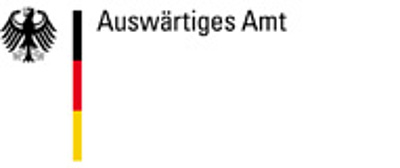
Kontakt
Presse, Kommunikation und Marketing
Tel.: +49 228 833-144
Fax: +49 228 833-441
presse[at]avh.de
Up to 20 more threatened scientists and scholars will have the opportunity to conduct research at German universities and research institutions starting October 2018.
The Alexander von Humboldt Foundation launched the fourth round of the Philipp Schwartz Initiative today with support from Germany's Federal Foreign Office. The programme assists scientists and scholars who seek safe haven in Germany from war and persecution in their own countries. The Philipp Schwartz Initiative puts German universities and research institutions in a position to host threatened foreign researchers for two years so that they can continue their work.
The latest call for applications for the programme begins now. Universities and research institutions wanting to host a threatened researcher may submit applications to the Humboldt Foundation until 15 May 2018. Further information about the programme is available here
Also new: universities that host Philipp Schwartz Fellows can apply to extend the respective fellowship by up to a maximum of one year. The prerequisite for an extension is co-financing. The Alexander von Humboldt Foundation will finance the first half of the extension, while the host institutions must finance the second half themselves.
“The Philipp Schwartz Initiative stands for a cultural relations policy that actively supports freedom of the arts, science and opinion”, noted the Director-General for Culture and Communication at the Federal Foreign Office, Andreas Görgen. “The Foreign Office – with the support of members of the German Bundestag – is working with intermediary organisations to additionally offer persecuted artists prospects in Germany in future”, said Görgen.
“We are very pleased that we are able to continue and expand the Philipp Schwartz Initiative and wish to thank the Federal Foreign Office for its committed political and financial support”, said Hans-Christian Pape, President of the Alexander von Humboldt Foundation. “The researchers who come to us, come not only from countries where war is raging and there is no safety, but also from nations where the freedom of dissidents is at threat. Scientists and scholars who want to work independently and express their opinions are particularly at risk in such countries. The fact that we offer them safe haven in Germany is an important, internationally visible signal”, said Pape.
So far, more than 120 researchers have been selected to receive a Philipp Schwartz Fellowship. Most of them come from Turkey or Syria.
The Alexander von Humboldt Foundation cooperates on the Philipp Schwartz Initiative with experienced partner organisations such as the Scholars at Risk network, the Scholar Rescue Fund of the Institute of International Education and the Council for At-Risk Academics.
The initiative is named after the Jewish pathologist Philipp Schwartz who had to flee Nazi Germany in 1933 and later established the Notgemeinschaft deutscher Wissenschaftler im Ausland (Emergency Society of German Scientists and Scholars Abroad). The Philipp Schwartz Initiative was created in 2015 by the Alexander von Humboldt Foundation and Germany's Federal Foreign Office. It receives additional supporting funding from foundations in Germany and abroad.
Further information
Funded by:
The Alexander von Humboldt Foundation
Every year, the Alexander von Humboldt Foundation enables more than 2,000 researchers from all over the world to spend time researching in Germany. The Foundation maintains a network of well over 28,000 Humboldtians from all disciplines in more than 140 countries worldwide – including 55 Nobel Prize winners.

